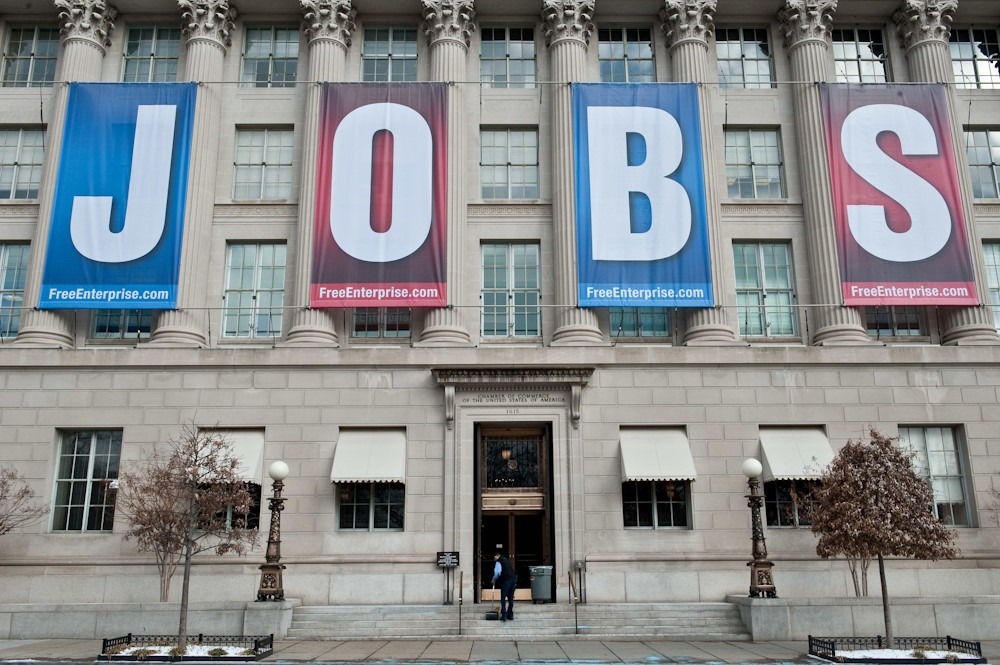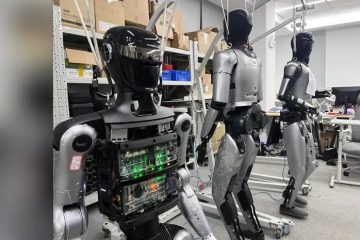The Class of 2024’s next task is to find employment

The Class of 2024 is poised to enter a job market that is just as unpredictable as their time in college.
According to a spring survey of 226 employers by the National Association of Colleges and Employers, employers are planning to hire 5.8% fewer new graduates compared to last year. According to students and recruiters, the expectations of bosses towards entry-level workers are evolving. Instead of prioritizing years of experience, they now seek candidates with advanced artificial-intelligence skills. According to certain companies, artificial intelligence is gradually assuming tasks that were traditionally assigned to recent graduates.
It is the most recent obstacle for the graduating seniors who started their studies during Covid-19 lockdowns and Zoom classes and concluded them amidst nationwide protests that disrupted campus life.
“I underestimated the difficulty of securing a screening interview,” remarked Daniel Cooper, a recent graduate in computer engineering from the Georgia Institute of Technology. The 22-year-old was offered a software-engineering job earlier this spring, but unfortunately, the company had to rescind the offer due to announced layoffs.
Overall, the job market continues to show strength, with recruiting executives noting that new graduate-hires have been able to enjoy consistent wage growth in recent years. However, graduating seniors are experiencing delays in securing professional positions. According to research and analytics firm Veris Insights, by April 2023, over one-third of individuals had secured a full-time job and ceased their job search. Around 25% of individuals had it this year.
Cooper has applied to approximately thirty other software engineering jobs since his offer disappeared, resulting in two interviews but no new offers. Despite having completed eight internships, he has encountered job applications that specifically require years of work experience, disregarding his internships. That leaves him with nothing.
HealthEdge, a company in the insurance software industry, is experiencing a decrease in their hiring of new graduates this year. It is hiring five new graduates in the U.S., a decrease from the 20 hired in 2023. In general, the company is reducing its number of entry-level hires and increasing the proportion of hires in India, according to Stefani Coleman, the head of early-talent recruitment and programming.
According to her, there has been an overwhelming demand for such jobs. At one point, she experienced a surge of 2,000 applications in just 24 hours for an associate software-engineering position.
“The market has undergone significant changes,” she remarked.
The number of computer-science majors is increasing while the demand for software programming roles seems to be decreasing. Two other significant campus job recruiting sectors, consulting and finance, are also experiencing a downturn following their hiring sprees during the pandemic.
According to Jay Killough, who heads Texas Tech University’s career center, graduates seeking employment face a more challenging environment due to the saturation of the job market with recently laid-off junior workers.
“Those individuals possess valuable expertise,” remarked Killough, “and the majority of employers we engage with highly value professionals with experience.”
Payton Poulston, a recent graduate from Indiana University Bloomington, has been actively searching for a job in medical-devices sales throughout her senior year. She has reached out to individuals she encountered during her three internships. Her mother, who is employed at a hospital, has been actively seeking job opportunities through her colleagues and other contacts.
Poulston has been able to secure interviews, but unfortunately, has not received any job offers. Companies often require three to five years of experience, even for positions that are supposed to be entry-level.
“It would be more efficient to hire someone who can seamlessly handle the tasks and possess a comprehensive understanding of the required processes,” she remarked.
According to Mohammad Soltanieh-ha, a clinical assistant professor at Boston University’s Questrom School of Business, companies are increasingly expecting graduates to have knowledge and skills in utilizing AI in their work. During class, his programming students are taught how to utilize AI to identify errors in their code, rather than wasting valuable time trying to solve them independently, he explained.
“The impact on entry-level workers is not due to AI taking their jobs,” explained Soltanieh-ha. “Someone who understands the mechanics of AI will be the one to replace them in their position.”
AI is beginning to replace certain types of conventional entry-level jobs. Axiologic Solutions, a government technology contractor near Washington, D.C., is utilizing AI to handle the responsibilities that were traditionally assigned to recent graduates in its human-resources department. An AI tool has the capability to efficiently deliver emails and training videos to new hires. A chatbot is capable of addressing numerous inquiries that a new employee may have.
According to Michael Chavira, the company’s managing partner and co-founder, there was no need to replace the two individuals who recently left the HR department. It is important for him to hire individuals with AI experience, as he plans to implement it in other business areas like accounting.
“AI is currently transforming entry-level positions, not rendering them obsolete,” Chavira stated.
Jennifer Neef, director of the University of Illinois at Urbana-Champaign’s career center, suggests that computer science majors explore job opportunities in various industries outside of the tech sector. According to her, smaller employers and government agencies will continue to hire until the middle of summer.
It is important to consider who is aware of your job search, especially among students. According to Neef, the response should be everyone.
She has been encouraging students to be strategic and precise when reaching out to employers and recruiters. That involves establishing meaningful connections, rather than bombarding hiring managers with generic messages, and consistently following up after an initial meeting. According to her, employers are keen on ensuring that their new hires possess a strong desire to learn and can easily adapt to their teams’ work styles.
Some career advisers suggest that graduates should avoid expressing their opinions about campus protests during job interviews.
“Our suggestion is to maintain a neutral stance, acknowledging the situation without bias,” stated Beth Hendler-Grunt, the president of Next Great Step, a career-coaching company. According to her, none of her clients have brought up such questions yet, even though many of them attended schools where protests occurred.
Kali Muniz, a recent graduate of Texas A&M University, successfully secured a job in October, despite encountering a few obstacles along the way.
The flight simulator company where she had previously interned informed her that they were not currently hiring new graduates due to budget constraints. She believed she had secured an interview for a consulting position, only to be taken aback when she received a rejection.
Muniz found the job she did get as a financial manager for the federal government by applying online. She included a recommendation from a contact she made during her internship in her application.
“I’m uncertain about the impact it had on me,” expressed the 22-year-old management major, “but I remain optimistic.”










